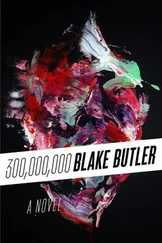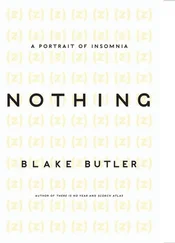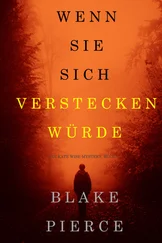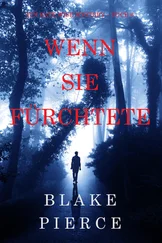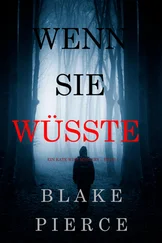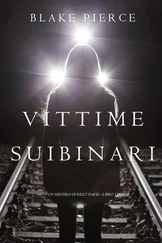From some short distance, she would have surely mistaken him for 811—sometimes she did regardless — her body sometimes burned. Through long afternoons she locked her door and stayed in the bed watching the ceiling — waiting that it might crack open and offer her a way. She licked the pictures taken of her and the gone man gushing together before the son, in that old air, then, and she stuck them to her body that they might sink in and reconvene.
Through the vents and at the door crack she heard the child moving through the house. In his sudden, swollen body he’d grown violent. She heard him screeching into nothing, throwing chairs or cracking glass, and when the tones came — much louder now, more frequent — the son howled in texture harmonizing. In other silence, she heard him speak in his new gouging voice. The words bulged in strange syntax, like the book and birds and something other, a shape contained by false edges, beyond air. She could feel certain of her son’s words grow large and move to bang against the air around her, as if with arms. So much speech coming out of the child’s holes — words he’d be meant to distribute over time, which now needed catching up and phrasing. The house’s oxygen strained and clung. The syllables and slurring shook the small walls as 2030’s tongue and lips grew more and more into their own shape. Not knowing what they knew there, but speaking nonetheless.
The mother wrapped herself in blankets. She felt afraid somehow of growing young, having to see all of this repeated — as if the age the child had gathered in so quickly had been supplanted out from her — she was much closer to the end than him, her meat insisted. She rolled in the sheets and comforters and pillowcases and old afghans someone old had knitted, pounds and pounds of threaded fiber, sunk with sweating among slept years — under their weight she felt she lost her body into mushing, yet she could always feel her head, and she could not quite make her eyes close.
Behind the wall the room that held the film that held the father began to grow so great in mass it warped with heat. It made the walls expand and stick to nothing. The floor squealed in juicing ridges full of pulp. The film had grown so thick among its spools that it began to form in knots and spots of blue emulsion. 811 felt himself become melted with it as it grew gathered.
The machines began to smoke. It stunk of burning sweat. The air itself began to grow.
The man without his head and yet still somehow eyes saw the machines steaming from through the wall. He crossed the room toward another wall parallel to the one through which the film room held the father. On this wall he spoke into a set of holes shaped like a star. Someone spoke back to him, in wrecked language. The symbol of the star slightly changed shape. The man without a head might have wished to nod. Instead he crossed the room again halfway toward a third wall against the outdoors, the sun and fields there. In the center of the wall he felt along the surface for a panel till it clicked. He opened the panel and pressed a button. A small hole in the film room with the father opened. The slurring film there began to thread out through the crease — through the crease into the air outside and into the air of all other things — there was a sound of skin or skins becoming slid from — cells barfing wide into the light.
The film spooled out around the building that held the room that held the father. It crept in wadding tides along the flat walls and out into the larger air, fluttered in thin ropes of darkened frame-hid color both all through the make of space and to the ground. It masked the windows of the building where heads had looked in or out on where they stood behind the pane divided. It knocked large birds out of the sky, dark bodies that as they fell dropped many eggs in clots of bombing, their half-bred babies also gone. The film gave sound in popping bubbles, scratching the surface of the concrete miles around the center of its eye. The concrete had been poured by state-named men to cover the earth over and keep all the crap and bugs and bodies or their sound from coming up — the concrete had been poured over rivers, statues, flowerbeds, and homes where homes had been before our homes now, ages interred — encasing the encased. The film slit slots in the fresh ground and went into it, spreading roots. Somewhere deep inside there it found itself again and reconnected in new frame, the father’s images rubbing in incidental friction. Through the film could squirt no light.
The film amassed around the building and mussed up quickly, building the building into some sort of slick and massive hive. From a distance the sheen of the film would reflect so much sun though you could not see — it would burn your eyes out — it would want to.
The film grew even as it burst. It grew as babble lathered in computers and as confluence under hair and tideless ocean. The film lashed across continents unseen, gushed in making new memory of its own presence, bowled over forests, wrapped through windows, undid locks. It mummy-wrapped the dead, engorged the subway system stalled and fat with bodies swollen from waves of heat, flossed the teeth of several living. As excrement it wormed into cows and birthed their young, came through TV screens and PC monitors and out through books, splashed up from coffee and other burning liquids, became tongues, became the language the tongues vibrated — it filled every inch of air of certain rooms, of certain weeks already passed and weeks uncoming. In many of the rooms the film came into there was no one left but this did not stop the film’s advance.
The film defeated sleep. It wedged as a disease into the ears of the half-conscious, wiped the goggled colors all to white, the motion there embedded back to nothing.
The bodies all woke up. The bodies moved from their beds and touched the window, looked for who had been there and who was coming. The bodies could not see beyond several feet, as if they’d remained stuck their in their own heads, their vision squashed and remaindered in the brain.
The film slid down the mouths of crying babies in their beds or in their cages, left alone in houses squashed by mice deformed and starving. The tape made loops inside their gut. The tape masked their eyeballs, made bandannas, curled into a new shining second skin. Became the child. The tape choked the elderly, slapped the deaf. Became the child. It washed through sound not known, layered in years of melted vinyl, it stroked the ceiling of soundstages, it skewered the holes in certain kind of breakfast cereal and then ate the breakfast cereal and then repackaged the breakfast cereal in better boxes, boxes more apt to get someone to touch it —had there been people shopping in these aisles. It replaced the definitions of certain words in dictionaries no one would ever open. It congealed in the next thing we would bite. It squished in trash compactors, snapped their gears and turned them pudding. I don’t know where we are. It became the stuff of pancake syrup. It meshed in the insulation of old houses, through the wires, it wore a buzzing, it caused long rips in old maps for new roads new zones new plate tectonics that would burp and screech, that would slide to one side or the other and let some new stretch burble up— on these flat pieces of new land were other buildings with no windows and no door, inside which there were men or women with no faces, features, no names, no nothing but keyholes in their eyes.
The film fed into projection booths of theaters no longer attended but still running, their smashed gray light gushed wrong and endless against the biggest walls of smallish rooms, the rows and rows of empty chairs all aimed as if to have even the air itself pay heed —to see. The film rolled in and made replacement of all the film on all the shelves in all the shops, all the men and all the women in and on and around the silent houses around any house, all the same house, the air of years and years of shapes embedded, forms recreated in grainy grain again, stored in a billion minds a billion times, or something, each sentence spoke a certain way, the way the eyes of certain actors would linger on the camera, the folds of days and age and light composed in each scene— never again —the reels and reels of names caught white on black or vice versa — all of this erased — all of this made of the father now — all as the tape spurted off and slithered, as the tape, unknown to the father, squirmed its grabbing girth around what had been and was the world.
Читать дальше

